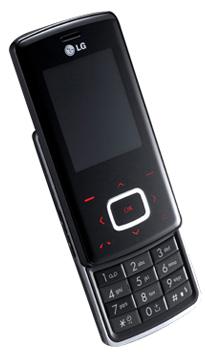Yuck. Chocolate never tasted this C.R.A.P-py


The first question I always have when I see a new device that does music like this one is what CRAP does it work with. CRAP is my personal acronym for the digital rights management (DRM) technology found in many of today's mutlimedia gadgets and software and it stands for Cancellation, Restriction, and Punishment (all of which DRM technologies enable). Actually, it was the Free Software Foundation's Richard Stallman who proposed that definition after I originally started with "Content Restriction, Anullment, and Protection." ZDNet readers like Stallman's expanded version of the acronym better than mine which is why I've gone with it. For more about CRAP, check out my videos: CRAP, The Movie and CRAP, The Sequel. Also, as a sidenote, Stallman and his compatriots at the Free Software Foundation are having a bear of a time managing the incompatibilities between the GNU General Public License and CRAP. Here's more on that if you're interested.
But, to better understand what is meant by cancellation, restriction, and punishment, one need look no further than VZW's license agreement which, in part, says the following (I've boldfaced some of the more interesting parts):
All music sales are final. All content offered through the Service (“Secure Content”) is protected by Windows Media® digital rights management technology (“WM-DRM”) so that the intellectual property rights, including copyright, of the content owners that have licensed Secure Content to the Service (“Secure Content Owners”) are not misappropriated. Your rights with respect to Secure Content are limited by copyright law and by the Usage Rules below. Your V CAST phone uses WM-DRM software to play Secure Content (“WM-DRM Software”). Use or distribution of WM-DRM Software outside of the Service is prohibited without a license from Microsoft or an authorized Microsoft subsidiary. If the security of the WM-DRM Software in your phone has been compromised, Secure Content Owners may request of Microsoft, and Microsoft may require of Verizon Wireless, to revoke the WM-DRM Software’s ability to acquire new licenses to copy, display and/or play Secure Content without notice. Revocation does not alter the WM-DRM Software’s ability to play unprotected content. A list of revoked WM-DRM Software is sent to your phone whenever you download a license for Secure Content. Microsoft may, in conjunction with such license, also download revocation lists onto your phone on behalf of Secure Content Owners.....You may: (i) play back Secure Content an unlimited number of times; (ii) burn Secure Content to compact disc (CD) five (5) times per song; and (iii) use a compatible USB cable to synchronize (“sync”) Secure Content stored on your PC to three (3) portable digital media players that support WM-DRM, including your V CAST phone (“Authorized Portable Device”). Secure Content that you have synced to an Authorized Portable Device cannot be further transferred to other devices for playback. Verizon Wireless may modify these Usage Rules without notice to you, and may enforce these rules (for itself and for Secure Content Owners) without notice to you.
Seems kind of lopsided, doesn't it?
The basic message, if I read the complete notice correctly (here's the entire thing), is that the license agreement places all sorts of restrictions on the customer, but is pretty much non-binding (in terms of the customer's rights) to Verizon Wireless. VZW can change what rules it wants, when it wants and doesn't have to tell you and the net result could be the revocation of your content.
I'm trying to figure out where else in life we normally put up with such lopsidedness. Maybe you know.
Update: For another eye-opener on the sort of shenanigans that certain wireless carriers are engaging in -- particularly when it comes to disabling the cooler features in your phones, check out a Buyer Beware I just posted.